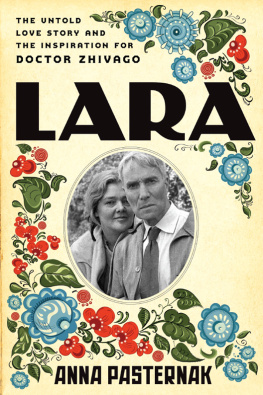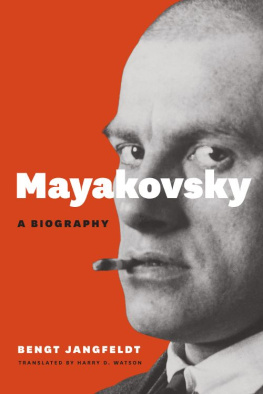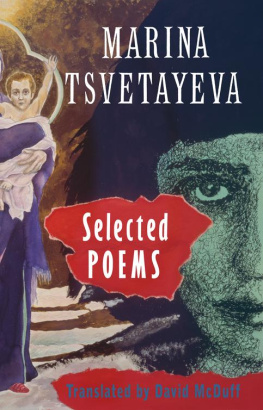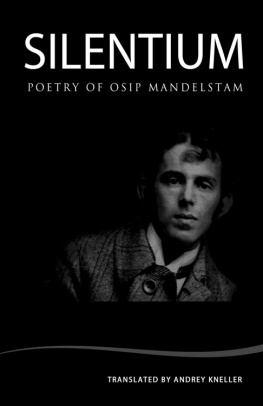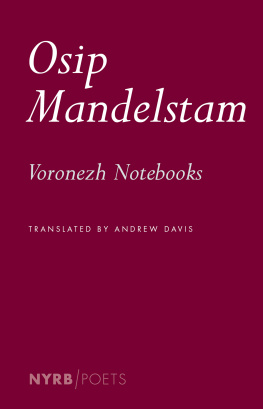Fear and the Muse Kept Watch
ALSO BY ANDY MCSMITH
The Iraq Report: A Special Investigation
No Such Thing as Society: A History of Britain in the 1980s
Innocent in the House
Faces of Labour: The Inside Story
Kenneth Clarke: A Political Biography
John Smith: A Life, 19381994

2015 by Andy McSmith
All rights reserved.
No part of this book may be reproduced, in any form, without written permission from the publisher.
Anna Akhmatova, excerpts from Complete Poems of Anna Akhmatova, translated by Judith Hemschemeyer, edited and introduced by Roberta Reeder. Copyright 1989, 1992, 1997 by Judith Hemschemeyer. Reprinted with the permission of The Permissions Company, Inc., on behalf of Zephyr Press, www.zephyrpress.org.
Requests for permission to reproduce selections from this book should be mailed to: Permissions Department, The New Press, 120 Wall Street, 31st floor, New York, NY 10005.
Published in the United States by The New Press, New York, 2015
Distributed by Perseus Distribution
LIBRARY OF CONGRESS CATALOGING-IN-PUBLICATION DATA
McSmith, Andy.
Fear and the muse kept watch : the Russian mastersfrom Akhmatova and Pasternak to Shostakovich and Eisensteinunder Stalin / Andy McSmith.
pages cm
Includes bibliographical references and index.
ISBN 978-1-62097-079-9 (e-book) 1. Soviet UnionIntellectual life1917-1970. 2. ArtsPolitical aspectsSoviet UnionHistory. 3. ArtistsSoviet UnionBiography. 4. Authors, Russian20th centuryBiography. 5. ComposersSoviet UnionBiography. 6. Motion picture producers and directorsSoviet UnionBiography. 7. Stalin, Joseph, 1879-1953Influence. 8. Politics and cultureSoviet UnionHistory. 9. Soviet UnionPolitics and government1936-1953. I. Title.
DK268.3.M35 2015
700.92'247dc23
2015008415
The New Press publishes books that promote and enrich public discussion and understanding of the issues vital to our democracy and to a more equitable world. These books are made possible by the enthusiasm of our readers; the support of a committed group of donors, large and small; the collaboration of our many partners in the in de pen dent media and the not-for-profit sector; booksellers, who often hand-sell New Press books; librarians; and above all by our authors.
www.thenewpress.com
Composition by Westchester Book Composition
This book was set in Adobe Caslon
Printed in the United States of America
2 4 6 8 10 9 7 5 3 1
To Imogen,
who is living under communism as I write
Contents
Anna Akhmatova spent the morning of February 25, 1917, by the old-style Russian calendar, at her dressmakers in Petrograd. After the visit, the poet hailed a horse-drawn carriage and asked to be taken across the Liteiny Bridge to the Vyborg district, where she was staying with friends. The cabbie refused her fare. There was trouble in the Vyborg, shooting in the streetsit was too dangerous. Unable to get home, Akhmatova spent the day wandering through the city. Everywhere there were disturbances. Fires had started. The tsar had ordered troops sent out to calm the crowds, but the mood was turning defiant and even the ferocious Cossacks were reluctant to attack their fellow citizens. Revolutionary manifestos had been pasted here and there. There had not been scenes like this in the Russian capital since the suppression of the 1905 revolt.
That evening, Akhmatova visited the Alexandrinsky Theatre in the company of a poetry-loving army officer who, like others before and after, was besotted with her. They were there to see a dress rehearsal of a new production of Mikhail Lermontovs Masquerade directed by Vsevolod Meyerhold. It has been described as the last act of a tragedy of the old regime, when the Petersburg elite went to enjoy themselves at this splendidly luxurious production in the midst of all the chaos and confusion.clowns to this new production. Young Sergei Eisenstein loved theater and loved clowns, so as soon as he heard that the production was open to the public, he risked the gunfire, the disruption of public transport, and all the other hazards to be at the theater doors. It was a wasted journey: the Alexandrinsky was closed and the production had been called off
Another memorable cultural event marked the evening of February 25: a literary and musical soiree in an artists studio run by Nadezhda Dobychina, who wanted to attract visitors to her latest art exhibition. Her most famous guest was the writer Maxim Gorky, whom she introduced that evening to the young composer Sergei Prokofiev, who gave a performance of a few of his short pieces, including a new work for voice and piano based on the Hans Christian Andersen tale The Ugly Duckling. After that night Gorky and Prokofiev became firm friends, and when Prokofiev was called up to fight in the war with Germany later that year, Gorky made such a fuss that the summons was canceled. That week in February, curiosity almost killed Prokofiev: he ventured out to see what was happening in the streets and had to dodge behind a house when the shooting came too close.
The revolution brought an explosion of freedom to a country that had never known anything but autocracy or chaos. Within barely a decade, that freedom was gone. Instead of liberating the human spirit, the upheaval had given rise to one of the most repressive and invasive dictatorships in human history. Why that happened is one of the great questions of recent human historywhich I will not attempt to answer in full; however, a contributory cause can be inferred from the behavior of Akhmatova, Prokofiev, Eisenstein, and others on the day the monarchy collapsed: they were interested enough to ask questions and perhaps venture into the streets to take a look, but it does not seem to have crossed their minds that this was a crisis in which they might usefully get involved. There is justice in the charge laid by Prokofievs first, Soviet biographer: In these groups the very possibility of a relationship between art and politics was considered unthinkable... a betrayal of the principles of pure artthough, to be fair, he might have added that if they had wanted to take up political activity, there was no obvious way to begin.
The middle class, or bourgeoisie, had a vital role in the scheme of history laid out by Karl Marx. He forecast that where there was feudalism, economic progress would give rise to a bourgeoisie who would overthrow the old order and create a capitalist democracy, as they had in England. The workers revolution would follow when class conflict made capitalisms continued existence untenable. But in 1917 Russias middle class was tiny. It had no collective political experience. Nineteenth-century Russian literature is replete with characters who agonize over the great questions of human existence but do nothing. The old regime was too repressive and too inefficient to adapt to changing times, so those who were interested in politics generally either gave up or became revolutionaries. The tsar was brought down not by an assertive bourgeoisie but by street riots of the urban poor and by the refusal of war-weary troops to enforce his authority.
During 1917, Russias provisional government struggled to create a democracy based on the Western model in highly volatile conditions, while still waging a war with Germany that was as good as lost. A right-wing military coup, in August, was poorly planned and easily shut down, but there was no certainty that the next would not succeed. Instead the moment was seized by the one group on the revolutionary left that was sufficiently disciplined to take power and hold it. While other political parties were mostly shapeless collections of more or less like-minded individuals without a leader able to exercise authority, the Bolsheviks had a command structure centered on Vladimir Lenin, who had dominated the organization from its founding. They also might have floundered in the chaos of 1917 had the Germans not obligingly put Lenin on a sealed train sent across enemy territory to return him to Russia from exile in Switzerland. The Bolsheviks had almost no support in the countryside, which gave them no chance of winning a free election, but they were well organized in every important urban center, and once in power they secured the temporary loyalty of millions of peasants by inciting them to seize ownership of the land from the aristocracy. The two revolutions swept through every institution in the Russian Empire, bringing down the tsar and all his ministers, destroying the police force, causing the army to disintegrate, and tearing apart the official standing of the Russian Orthodox Church. The aristocracy lost their land; the factory owners lost their factories, seized by the state in the name of the workers. The Bolsheviks disbanded Russias first properly elected parliament, the Constituent Assembly, before it ever had a chance to meet.
Next page

